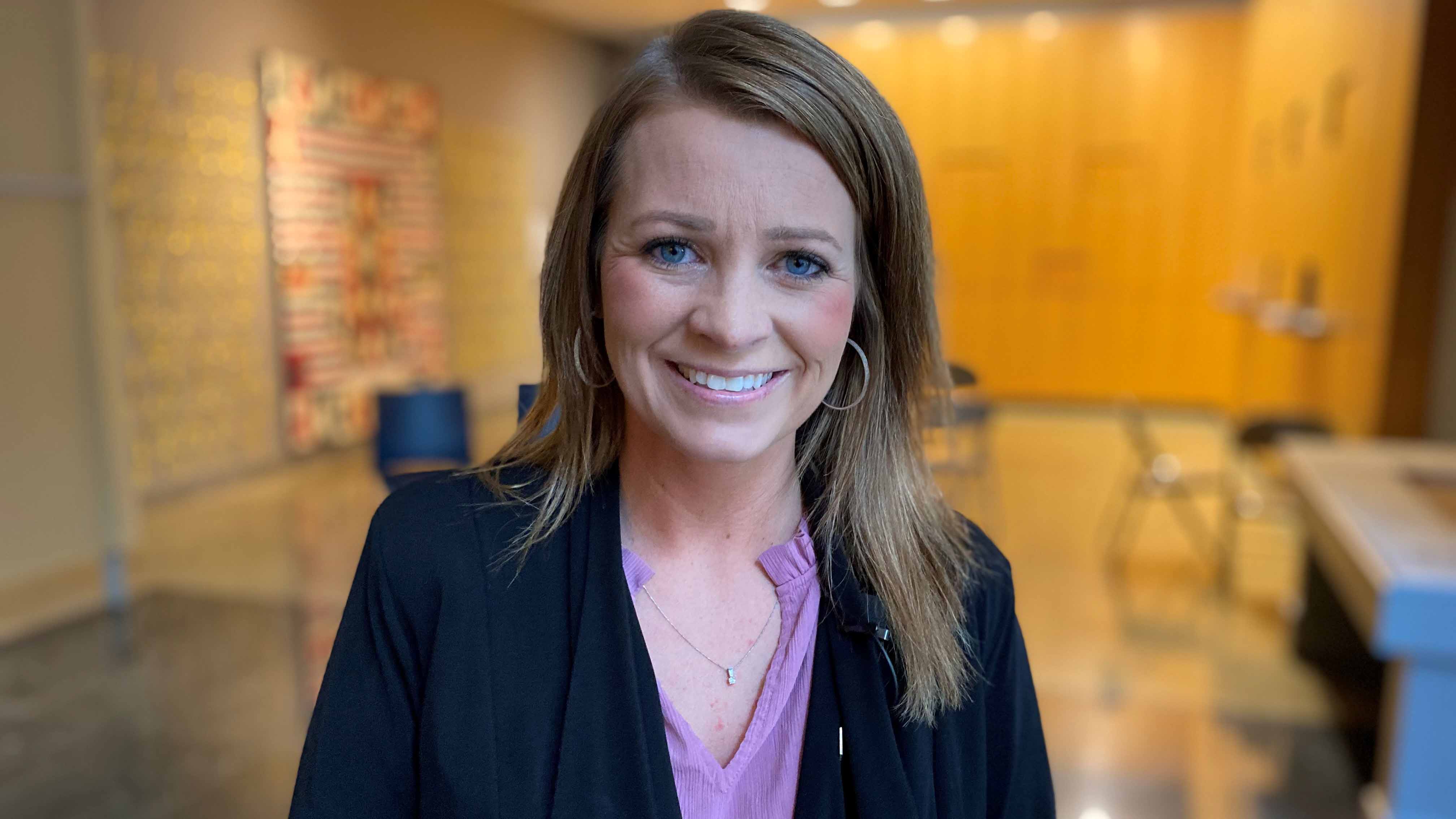Lynch: ‘I’m One of the Lucky Ones’
Lynch: ‘I’m One of the Lucky Ones’

Former Pfc. Jessica Lynch, the supply soldier who was taken prisoner at the start of operations in Iraq 20 years ago, said she has thrived and helped others through trauma by sharing her own story of survival.
With memories of gunfire, the deaths of her fellow soldiers and captivity still fresh in her mind, Lynch recounted parts of her harrowing ordeal during a fireside chat hosted by the Military Women’s Memorial at Arlington National Cemetery. The event March 19, during which Lynch was named a “Living Legend” by the Military Women’s Memorial, recognized the 20th anniversary of the U.S.-led invasion of Iraq.
“I love telling my story,” Lynch said at the event, recognizing that not all veterans have the support of family or community as she does. Lynch said she shares her story and works to help other veterans of trauma by talking through the effects of PTSD. Sometimes, she said, she has talked them out of suicide.
“I've been there. I have been probably, sometimes, at the lowest point of my life, where I didn't want to continue on because the pain gets so bad,” said Lynch, who has undergone dozens of surgeries and still walks with a limp.
Acknowledging the veterans in the audience, she said, “I know you understand what I'm saying, just being over there or serving in uniform, it is very hard, and it’s a demanding kind of afterlife to come back to a civilian side of it.”
Lynch was 19 and a member of the 507th Maintenance Company when the ground march from Kuwait to Baghdad began on March 20, 2003. Vehicles from the Fort Bliss, Texas-based unit were last in a convoy of several hundred vehicles moving north when the soldiers took a wrong turn.
Part of Lynch’s unit, 33 soldiers traveling in 17 vehicles, including 18-wheelers, she said, got separated from the rest of the unit. They lost their way, got stuck in mud bogs and sand and unwittingly headed into Nasiriyah.
“We were completely off track, lost in the desert, basically, with no communication, no radios, no way of contacting anyone because we were so far away from the rest of our unit,” Lynch recalled. “We spent every waking moment trying to dig ourselves out of the sand. We would use our hands to try to get the vehicles to just go.”
On March 23, now in the center of Nasiriyah and surrounded by growing crowds of people, the soldiers had managed to turn their vehicles around to head back south, but it was too late.
“That is when we heard that first gunshot that we did not want to hear,” she said. “We were locked, we were loaded, we were ready,” but the ambush ramped up too quickly for the soldiers to react.
“It was like we were ducks in the middle of a pond with nowhere to run, nowhere to hide, nowhere to escape from the gunfire,” Lynch said.
Lynch survived the March 23 ambush, but 11 of her fellow soldiers were killed, and six others were held as prisoners, including her best friend, Pfc. Lori Piestewa, who died of her wounds in captivity.
Badly wounded herself and kept separate from the other captive soldiers, Lynch was rescued by U.S. special operations forces eight days later. She weighed 76 pounds when they found her.
In addition to Piestewa, those killed in action were Sgt. Donald Walters, Pvt. Brandon Sloan, Chief Warrant Officer 2 Johnny Villareal Mata, Spc. James Kiehl, Pfc. Howard Johnson, Pvt. Ruben Estrella-Soto, 1st Sgt. Robert Dowdy, Spc. Jamaal Addison, Spc. Edward Anguiano and Sgt. George Edward Buggs.
Having suffered through the terrifying ordeal of captivity with multiple broken bones, Lynch said she feels blessed to have made it through to fulfill her dream of becoming a teacher and has shared her story all along with her daughter, Dakota, who is 16.
“I don't complain. I'm trying not to, because I know that there’s people out there that are much worse than I am,” she said. “I’m one of the lucky ones.”

